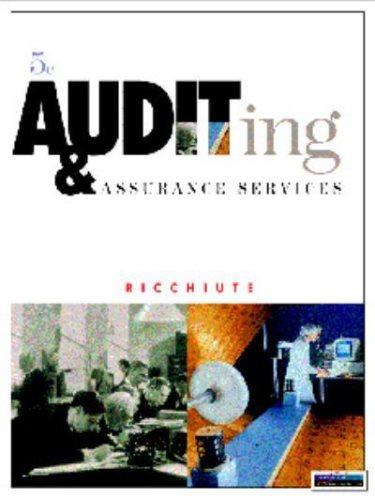Translating sampling risk and audit risk into layman's terms is rather straightforward: Sampling risk translates loosely to
Question:
Translating sampling risk and audit risk into layman's terms is rather straightforward:
Sampling risk translates loosely to "the risk that what you're looking for is not where you're looking," and audit risk to "the risk of issuing an inappropriate opinion." But reconciling those risks with the concept of reasonable (rather than absolute) assurance is somewhat more of a trick when the audience is an aggrieved financial statement user How do you explain to a commercial lender swindled in a high-profile embezzlement scheme that you were looking somewhere else, that your opinion was wrong, but that, because no audit guarantees absolute assurance, you're not culpable. Remember, this lender was swindled.
Required:
Select an article that reports fraud in a corporate or governmental entity from the business or accounting press (e.g.. The Wall Street Journal, Accounting Today, Public Accounting Report, Business Week, The New York Times) or from an automated newspaper research service like NEXIS, and draft a report about:
1. How attribute estimation or sequential sampling might have signaled the fraud, or how discovery sampling might have detected the fraud.
2. Arguments that might explain the relationship among sampling risk, audit risk, and reasonable assurance to the defrauded parties.
Step by Step Answer:






